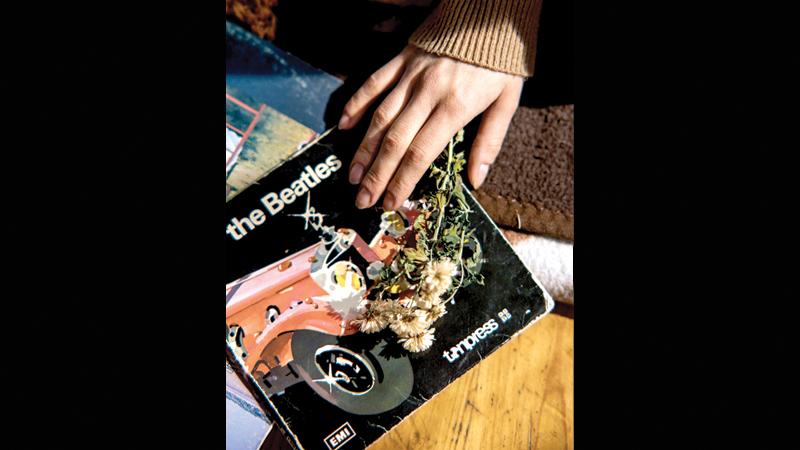
Before BTS, One Direction or even the BackStreet Boys, The Beatles had its stranglehold on the world as the first boy band to become an international phenomenon.
They were responsible for kicking off the 60s British Invasion, which led to a brief surge in popularity for British culture in the US, giving rise to other timeless acts such as the Rolling Stones. They changed the face of music at the time by popularizing many innovative artistic presentations and music production techniques that have since become the norm.
The Beatles were only active for a very brief period; with only 10 years together, but their cultural impact has been timeless and are commonly regarded as the most influential band in popular music history.
Though the most iconic group for The Beatles consisted of Paul McCartney, Ringo Starr, John Lennon, and George Harrison, their first stable lineup was actually made up of five members who were based out of Liverpool.
Ringo was a later addition, and instead they had Stuart ‘Stu’ Sutcliffe on bass, and Pete Best on drums. Sutcliffe left the group in 1961 to pursue his Art studies in Germany but would tragically pass away barely a year later in 1962 at the age of just 21, never getting to see The Beatles rise to fame. Pete Best was fired from the group in 1962, shortly before the group went viral, replaced by Starr, who was a local veteran drummer at the time who would occasionally sub in for Best.
Rise to fame
Their meteoric rise to fame began when local music promoter Brian Epstein took notice and convinced them to let him serve as their manager, which he would continue to do until his death. Despite having no prior experience managing artists, Epstein was responsible for a lot of what made The Beatles so appealing at the start.
 Prior to his involvement, The Beatles were a lot like any other young band in England, playing in clubs and bars to a handful of people.. Epstein cleaned their act up, made them wear suits and got them to adopt a more clean cut persona. He even got them signed up with George Martin, head of Parlophone Records, a part of the EMI conglomerate.
Prior to his involvement, The Beatles were a lot like any other young band in England, playing in clubs and bars to a handful of people.. Epstein cleaned their act up, made them wear suits and got them to adopt a more clean cut persona. He even got them signed up with George Martin, head of Parlophone Records, a part of the EMI conglomerate.
There was no one specific reason for why The Beatles got so popular internationally. It was a multitude of reasons that created the perfect storm for Beatlemania to begin in America. The four were comfortable in front of a camera, press conferences always went well and audiences ate up their personalities and dry British wit.
They improved their music in leaps and bounds, in all aspects. The group never stuck to one kind of song and always strived to make a different sound, going from ballads to rock to psychedelic in the same album. They were the first band to make music videos for their songs. During the height of their career they also appeared in movies, had a TV cartoon and a documentary based on them. The Beatles were a cultural phenomenon and they fully capitalized on it.
Infamous comment
The beginning of the end for the Beatles happened just a couple years after they first came to America in 1964, when John Lennon made his infamous comment in an interview with a London newspaper in March 1966.
While speaking of their individual lifestyles as music icons, the topic shifted to religion which prompted the comment from Lennon in which he candidly stated that the Christian faith was declining, that the public were more drawn nowadays to the Beatles than Jesus, and wondered which would go first, Christianity or Rock music.
The comment prompted no controversies in the UK, but word had reached the US, where the religious Southern US and even the KKK were very publicly outraged. Albums were burned, Radio stations banned their music and their merchandise was destroyed, even after Lennon publicly apologized.
Besides that controversy, the Beatles were suffering from internal discord as the most power within the group was held by McCartney and Lennon, the two founding members, which irked George Harrison. Ringo Starr, as the newest member, was always alienated from the others.
This friction was exacerbated by the death of their manager, Brian Epstein, in 1967. A power struggle between the members took place, where McCartney wanted to bring in an in-law as manager, which the others did not want as it would grant him more influence over the group.
Creative differences
They instead went with Allen Klein, a manager notorious for cheating his artists, despite explicit warnings from their fellow act, The Rolling Stones. Eventually, creative differences led to Lennon leaving the group in 1969 and the group officially dissolved the following year.
Though they would individually enjoy some degree of popularity even after the break up, to the extent that a second wave of Beatlemania would occur, they would never get the chance to mend their differences.
John Lennon was shot dead in 1980 by a former fan for his ‘blasphemous’ remarks about christianity and perceived hypocrisy of his ideals and lifestyle. George Harrison succumbed to lung cancer in 2001.
The surviving Beatles, Paul McCartney and Ringo Starr still have active and successful careers in music, and have even collaborated if rarely.

